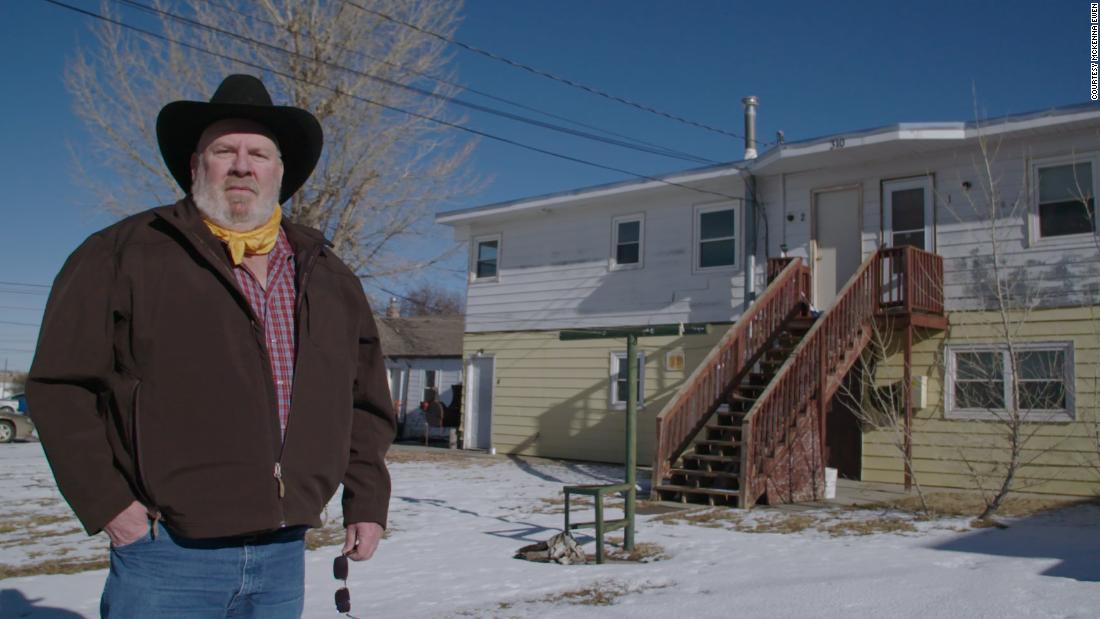After the election, Steve Gray of Gillette, Wyoming left CNN a voicemail saying he feared his home will become a ghost town under President Joe Biden. John Sutter traveled to Gillette to meet Gray. He asks: In the fight against the climate crisis, and after President Biden has re-joined the...

www.cnn.com
Here is an article about how towns that have risen out of the fossil fuel industry are being left behind and their people without jobs. It brings up a good point, does the United States owe it to them to help them transition? The government funded building the towns, which will likely end up as ghost towns as people abandon them due to the lack of jobs.
Being from a state that relies on oil and gas, I say yes, they should fund transitions to new industry. However, the problem is that they made such a huge environmental mess with the oil and gas that it's hard to get industry to want to come down here--except more dirty industry since we did get a plastics plant to move to St. John's Parish (you know, to guarantee a fresh round of pollution in our water ways especially).
What has been an environmental disaster area for years is now also becoming an economically depressed environmental disaster, which never bodes well for the future. If you want places like this to rebound and start to heal environmental damage, you HAVE to invest in these communities. If you don't, you get poverty, pollution, and all the issues that come with that--crime and disease to name a couple--in check, it's going to spread. To think that economically depressed areas don't have a bearing on you, is naïve at best.
I had asked my Grandmother if she could make one as well. She got back to me with she's a hooker, not a knitter

I

your grandma.
Hey you go, you can buy the original.

Made with acrylic and cotton yarns, he is 9" tall but is made to sit. Bench is included! His arms and legs are pose-able!
www.ebay.com
It says it is crochet, if that's what your grandma meant by being a hooker. I'm not sure though I can't tell how it was made exactly.
Knitting is done with 2 sticks. Crochet is done with a hook.
His grandma was saying that she crochets but doesn't knit.
I was reading a Twitter thread this morning on a tweet reminding us that our profit healthcare system costs four times as much as Canada's per capita to run.
Most all the replies were people defending our healthcare system

It became clear that people are really uninformed or had fallen for the lies.
For example, one person replied with.
Obviously someone who doesn't understand per capita.
Lots of people saying "they wouldn't want the government in charge of out healthcare" and "we get what we pay for. We have the best healthcare in the world". Lots a nonsense about long wait times for care, government having death panels and so on.
I have so much to say about all of this.
I believe it was some time in 2012 when there was a huge analysis done on American health care and how much it costs per capita. The big buzz was that the UK, though alike with our citizens as far as health behaviors and diet, had better health outcomes than we did but pay roughly $3K less per capita per year. Thus followed a slew of critical analysis regarding the US healthcare system. But some amazing person realized that this was an incomplete analysis and decided to expand out the analysis to look at social services + healthcare outcomes. They found that the UK spends as much per capita per year on their citizens as the US does, BUT that extra $3K that researchers didn't find go to paying the healthcare system, they found was spent in social services--things like public transit and welfare--especially for young families, this includes paid leave for pregnancy. So the UK did about a 60/40 split of funding the medical system plus the social services system, all with what we spent per capita on healthcare alone--and what's so terrible about all of this is that the UK was covering everyone in 2012. All of this analysis was done before we expanded Medicaid, so this per capita that we were spending wasn't even on our entire population.
As for that amazing US health care that we pay so much for? I present this study from Johns Hopkins:
Analyzing medical death rate data over an eight-year period, Johns Hopkins patient safety experts have calculated that more than 250,000 deaths per year are due to medical error in the U.S. Their figure, published May 3 in The BMJ, surpasses the U.S. Centers for Disease Control and Prevention’s (CDC’s) third leading cause of death — respiratory disease, which kills close to 150,000 people per year.
According to the CDC, in 2013, 611,105 people died of heart disease, 584,881 died of cancer and 149,205 died of chronic respiratory disease — the top three causes of death in the U.S. The newly calculated figure for medical errors puts this cause of death behind cancer but ahead of respiratory disease.
The researchers caution that most of medical errors aren’t due to inherently bad doctors, and that reporting these errors shouldn’t be addressed by punishment or legal action. Rather, they say, most errors represent systemic problems, including poorly coordinated care, fragmented insurance networks, the absence or underuse of safety nets, and other protocols, in addition to unwarranted variation in physician practice patterns that lack accountability.
Follow the Johns Hopkins Medicine newsroom for the latest updates in medicine, scientific discovery, and next generation medical education, expert sources, and media contact information.

www.hopkinsmedicine.org
Geez, it almost seems like we get better health outcomes when people's economic and social needs are also somewhat considered in this equation. And we get better medicine when care is coordinated and not fought over via insurance networks. It looks like our "best in the world healthcare" is nothing more than a construct put up by insurance companies and health systems alike who don't want to give up soaring profit margins that are tied to commercial insurance.
The long wait times drives me nuts. Basically, more people have access to health care and aren't simply not going to save money, so you might have a busier waiting room at the ER... How selfish can you be to complain about that?
The reason that you have long wait times in the ER is because most hospitals are not allowed to turn anyone away, despite their ability to pay. They must receive emergency treatment by law. Also, some ERs don't take copays at admit, so those often get over run by people who have no ability to pay. If you expand out coverage, this won't be as much of a thing anymore because they could go to an urgent care clinic which is a more appropriate place for a large portion of uninsured ER use. You might have a busier line at urgent care, but this would eliminate the huge problem of ER overrun.




www.cnn.com

www.cnn.com



your grandma.
